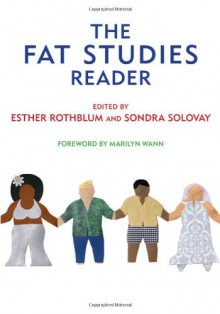Winner of the 2010 Distinguished Publication Award from the Association for Women in PsychologyWinner of the 2010 Susan Koppelman Award for the Best Edited Volume in Women’s Studies from the Popular Culture AssociationWe have all seen the segments on television news shows: A fat person walking on...
show more
Winner of the 2010 Distinguished Publication Award from the Association for Women in PsychologyWinner of the 2010 Susan Koppelman Award for the Best Edited Volume in Women’s Studies from the Popular Culture AssociationWe have all seen the segments on television news shows: A fat person walking on the sidewalk, her face out of frame so she can't be identified, as some disconcerting findings about the "obesity epidemic" stalking the nation are read by a disembodied voice. And we have seen the movies—their obvious lack of large leading actors silently speaking volumes. From the government, health industry, diet industry, news media, and popular culture we hear that we should all be focused on our weight. But is this national obsession with weight and thinness good for us? Or is it just another form of prejudice—one with especially dire consequences for many already disenfranchised groups?For decades a growing cadre of scholars has been examining the role of body weight in society, critiquing the underlying assumptions, prejudices, and effects of how people perceive and relate to fatness. This burgeoning movement, known as fat studies, includes scholars from every field, as well as activists, artists, and intellectuals. The Fat Studies Reader is a milestone achievement, bringing together fifty-three diverse voices to explore a wide range of topics related to body weight. From the historical construction of fatness to public health policy, from job discrimination to social class disparities, from chick-lit to airline seats, this collection covers it all.Edited by two leaders in the field, The Fat Studies Reader is an invaluable resource that provides a historical overview of fat studies, an in-depth examination of the movement's fundamental concerns, and an up-to-date look at its innovative research.
show less

